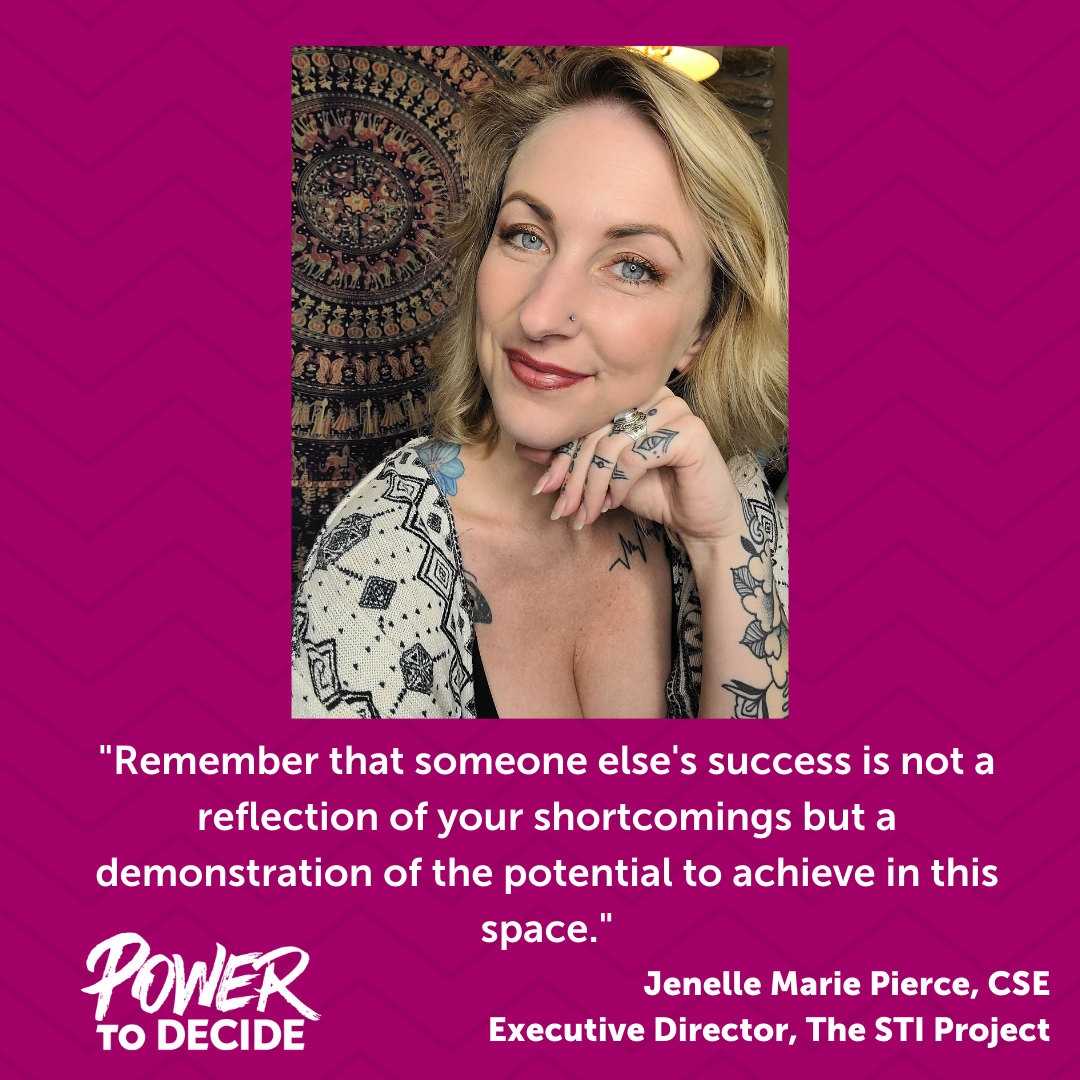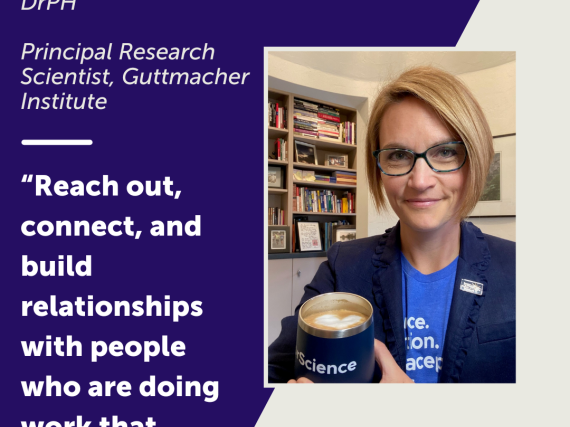January 2022 Power Player
At Power to Decide, we’re committed to uplifting the many individuals on the ground doing the work that matters most. Each month we highlight an individual who is championing the effort to support young people’s reproductive well-being. Check out this month's Power Player profile.
Jenelle Marie Pierce, CSE
Executive Director of The STI Project
What work have you done to ensure that all people have the information and access they need to make decisions that align with their intentions and improve their reproductive well-being?
Broadly speaking, I try to be continually learning and growing as an educator so that I can support a diverse audience whose needs are evolving just as quickly as our environment evolves. A good example of this is one of the things I champion through the courses I teach: healthy and affirming communication that can be used by both members of the public and providers. In order to provide comprehensive, inclusive, medically accurate, and empathetic sexuality education, we must model what healthy and affirming communication looks like.
For instance, a statement like, “you should always wear a condom with all partners” while solid advice, does not consider barriers to access, personal safety, education, risk assessment, health inequities, and so on. Therefore, a better way to phrase the same idea that centers harm reduction and puts agency back in the hands of the person navigating safer sex decisions would sound something like this: “If you would like to reduce risk as much as possible, consider using condoms with all partners.” It’s a small change, but a powerful one. When we are referring to others, we remove language that is authoritative (such as absolutes and directives) because that strips our audiences of their agency, and we encourage them to use language that is authentic for them when they are speaking to their personal needs, wants, and boundaries.
How did you get started in your field? What is your driving force?
Originally, I set out to create the resources that I so desperately needed when I was a young adult and newly diagnosed with an STI. What keeps me going are all the messages I receive letting me know that I’ve had a positive impact on someone’s sexual health and/or life – I keep every message, because they remind me that the hard work is worth it!
What advice would you give to someone looking to effect change in the field that you currently work in?
Remember that someone else’s success is not a reflection of your shortcomings but a demonstration of the potential to achieve in this space. We are not competitors, and there is enough room for everyone, because everyone needs this work. You will most certainly add value and your voice is needed here!
Why should someone care about ensuring that all people—regardless of who they are or where they live—have the information and access they need to live their best life?
There’s a reciprocal effect to ensuring that resources are accessible and equitable for all: helping others and making others’ lives fuller makes our lives fuller as well. If you’ve ever heard the saying, “hurt people hurt people,” then this will make sense. While that’s a very generalized way of looking at it, the idea still holds water, because folks who are supported by healthy communities tend to contribute to the ongoing health of those communities, and that supports the health and wellness of all people.



